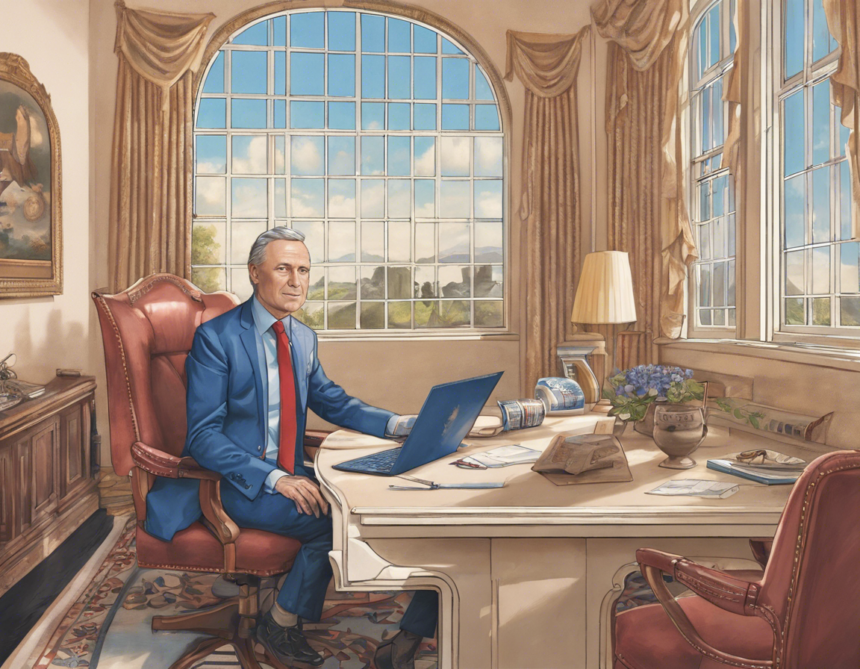Introduction
In the ever-evolving world of technology, the latest buzz surrounds the highly-anticipated release of the operating system, Windows 12. As the successor to Windows 10, this new version promises to bring a range of exciting features and improvements to enhance user experience and productivity. Let’s delve into the world of Windows 12 and explore everything you need to know about this revolutionary update.
What is Windows 12?
Windows 12 is the upcoming operating system developed by Microsoft, which serves as the latest iteration in the Windows series. Building upon the foundation laid by its predecessor, Windows 10, this new version aims to offer users a more streamlined and efficient computing experience.
Key Features of Windows 12
Improved Performance: One of the key highlights of Windows 12 is its focus on performance optimization. With faster boot times, enhanced responsiveness, and improved overall system speed, users can expect a smoother and more efficient operation.
Enhanced Security: Security is a top priority in Windows 12, with advanced features such as built-in antivirus protection, ransomware protection, and enhanced firewall capabilities. This ensures that user data remains secure and protected from cyber threats.
Updated User Interface: Windows 12 boasts a modern and intuitive user interface, making it easier for users to navigate and access various features. With a clean design and improved visuals, the overall user experience is enhanced.
Cortana Integration: Microsoft’s virtual assistant, Cortana, is integrated seamlessly into Windows 12, offering users voice-activated assistance for various tasks such as setting reminders, searching the web, and managing schedules.
Cross-Device Compatibility: Windows 12 is designed to seamlessly work across a range of devices, including desktops, laptops, tablets, and even smartphones. This ensures a consistent experience regardless of the device being used.
System Requirements
To ensure smooth operation of Windows 12, it is essential to meet the minimum system requirements. These typically include a compatible processor (such as Intel or AMD), a specified amount of RAM, available storage space, and other hardware considerations. It is recommended to check the official Microsoft website for detailed system requirements specific to Windows 12.
Upgrade Process
For existing Windows users looking to upgrade to Windows 12, Microsoft typically provides a straightforward upgrade process. This may involve downloading the update from the Microsoft Store, running the installation wizard, and following the on-screen instructions to complete the upgrade. It is advisable to backup important data before proceeding with the upgrade to prevent data loss.
Frequently Asked Questions (FAQs)
1. When will Windows 12 be released?
– The exact release date for Windows 12 has not been officially announced by Microsoft. However, rumors suggest that it may be launched in the near future.
2. How much will Windows 12 cost?
– Pricing details for Windows 12 have not been confirmed yet. Users may have the option to upgrade for free or purchase a license, depending on Microsoft’s policies.
3. Will Windows 12 be compatible with older hardware?
– While Windows 12 is designed to be efficient, compatibility with older hardware may vary. It is recommended to check the system requirements before upgrading to ensure compatibility.
4. Can I try a beta version of Windows 12?
– Microsoft may offer beta versions of Windows 12 for testing purposes before the official release. Users interested in trying out the beta version can check Microsoft’s website for updates.
5. Will Windows 12 include new productivity tools?
– Windows 12 is expected to introduce new productivity tools to enhance user efficiency. Features such as improved multitasking capabilities, collaboration tools, and enhanced Microsoft Office integration may be included.
6. What are the benefits of upgrading to Windows 12?
– Upgrading to Windows 12 offers users access to new features, improved performance, enhanced security measures, and an overall better computing experience. It also ensures compatibility with the latest software and applications.
In conclusion, the arrival of Windows 12 marks a significant milestone in the world of operating systems, promising a host of new features and enhancements to elevate user experience. With its focus on performance, security, and user-friendly design, Windows 12 is poised to set a new standard for modern computing. Stay tuned for updates on the release and prepare to embark on a new era of technological innovation with Windows 12.


Leave a Reply